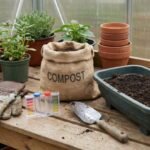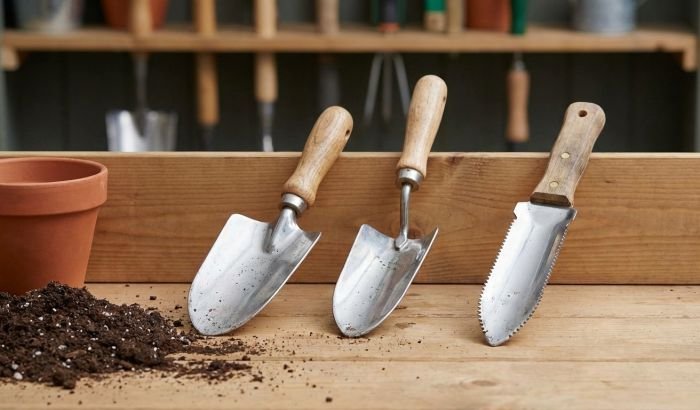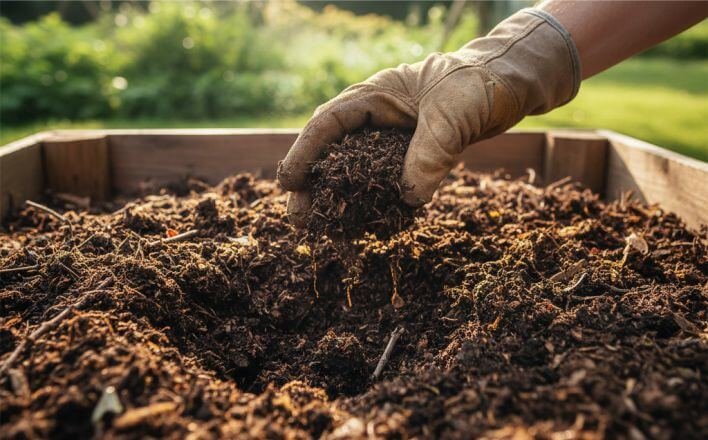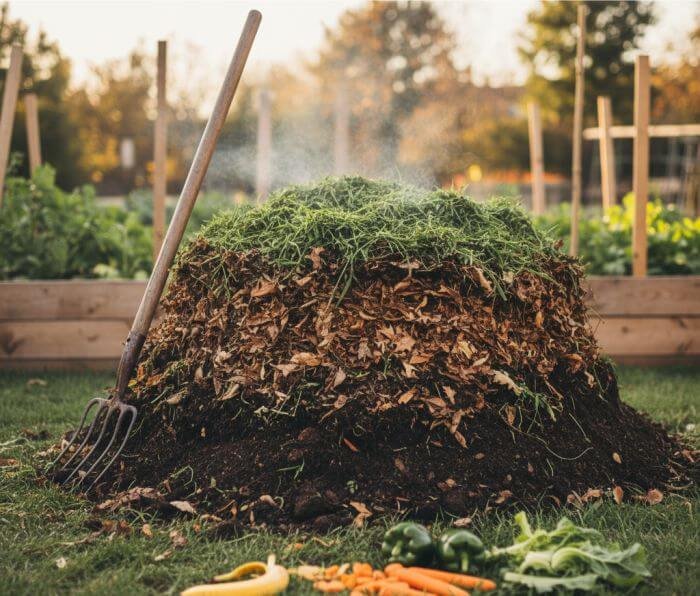Are you having trouble keeping your plants well-watered? Do you struggle to water the garden well? The key is picking the right watering can. Even though it seems simple, it’s vital for your plants to grow strong and healthy.
Let’s explore the world of watering cans together. We’ll look at different types, what to consider before buying, and even special cans for unique needs. You’ll learn all you need to know to choose the best watering can for your garden.
Key Takeaways:
- Choosing the right watering can is essential for successful gardening.
- There are various types of watering cans available, each with its own benefits.
- Consider factors like garden size, plant types, and user comfort when selecting a watering can.
- Specialized watering cans cater to specific needs, such as indoor plants or hanging baskets.
- Proper maintenance and care can prolong the life of your watering can.
Table of Contents
About Watering Cans
We’re excited to talk about watering cans. These tools are vital for taking care of our plants. They help us water each plant as needed, keeping them healthy.
Importance of Choosing the Right Watering Can
Choosing the right watering can is crucial. It makes sure our plants get just the right amount of water. This helps them grow strong without problems like root rot.
The best watering can lets you water plants without waste. You can give different plants the amount of water they need. This keeps them in good health and growing well.
Watering cans are also made to be easy to use. They have comfy handles and are light. This means less trouble for you when you water your plants.
For anyone who loves gardening, a good watering can is a must-have. It helps make your garden a beautiful place.
Types of Watering Cans
Let’s dive into the world of watering cans. Finding the right one is key for taking care of plants and keeping your garden lively. We’ll look at the different kinds and their special traits.
Plastic Watering Cans
Plastic watering cans are light and budget-friendly, a top pick for many gardeners. They’re simple to move around, perfect for everyone. These cans come in lots of sizes and shapes to fit your garden. Plus, they last long because they don’t rust or break easily.
Metal Watering Cans
Metal watering cans stand out for how tough and lasting they are. They’re often made of strong materials like galvanized steel or aluminum. This means they can handle lots of use and tough weather. Their design is usually classic, adding a special look to gardens. For garden lovers, they’re a great buy that will serve them well for a long time.
Ceramic and Decorative Watering Cans
Ceramic and decorative watering cans bring beauty to gardens. They are full of fine details and come in bright colors. This makes your outdoor area look stunning. Besides their pretty looks, they do a great job watering your plants. If you want your garden to be both pretty and practical, these cans are for you.
Factors to Consider When Choosing a Watering Can
Choosing a watering can for your garden is important for good plant care. Consider your garden’s size, how often you water, the needs of your plants, and comfort for the person using it. This helps you make a wise choice that makes watering easier.
Garden Size and Watering Frequency
For small gardens or indoor plants, a compact watering can works well. It should have a small capacity for easy handling and precise watering. For large gardens or outdoor areas, choose a can that holds more water. This way, you’ll spend less time refilling and water a bigger area at once.
How often you water is also key. If you water a lot, a big can is easier since it means less refilling. With less frequent watering, however, choose a smaller can. This avoids water from standing too long and creating a place for mosquitoes.
Plant Types and Specific Needs
Think about what your plants need when picking a watering can. Some plants need more water and others less. Equip yourself with different types of cans to suit them. Use a can with a soft, shower-like sprinkle for sensitive plants. This prevents harm and overwatering.
Some plants like their water at the bottom. For these, use a can with a long, narrow spout. It lets you water without wetting their leaves. Knowing what your plants need guides you to the right can.
User Comfort and Ease of Use
Your comfort is crucial too. Look for a can with a handle that feels good in your hand. Features like an ergonomic design or a soft grip can make a big difference. They reduce hand strain, especially when watering takes a while.
Think about the can’s weight, especially if you have a big garden. A lighter can is easier for longer trips. But, if durability is what you value, a heavier metal or ceramic can might be better.

Choosing the best watering can is about the garden’s size, how often you water, what your plants need, and your comfort. Considering these makes plant care efficient and enjoyable.
Watering Can Capacity
When picking a watering can for your garden, think about how much water it can hold. The amount of water a can holds is its capacity. This feature is very important for how well you can water your plants.
Small Watering Cans (1-2 Liters)
Small watering cans are great for watering fragile plants with care. They are light and easy to move, making it simple to water plants just as needed. If you have small plants or a tiny garden, a small can is best to avoid overwatering.
Medium Watering Cans (3-5 Liters)
Medium cans offer a nice balance, handling a good amount of water. They work well for most gardens. If your garden isn’t too big but has different plants, a medium can is ideal for you.
Large Watering Cans (6+ Liters)
Larger gardens or spaces call for a big watering can. These cans hold more water so you won’t need to refill as often. They are perfect for many plants at once or a big garden.
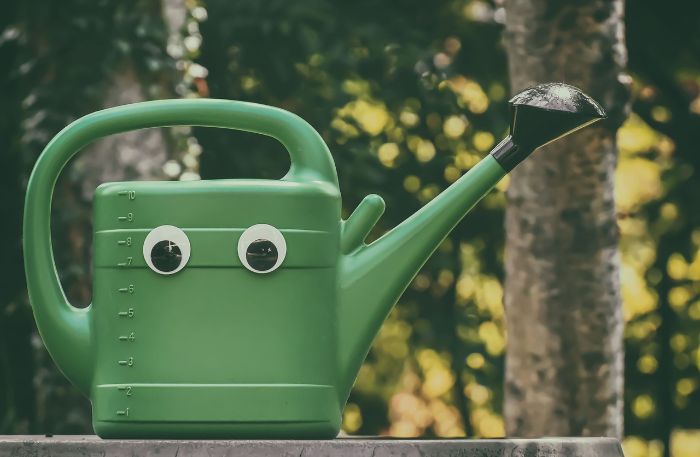
Think about your garden’s size and how much water your plants need. This helps to choose a can with the right capacity. You want to water your plants well without wasting water or refilling too much.
Spout Design and Functionality
We’re going to look at how a watering can’s spout works. It’s key for watering your plants right. The spout design helps you water your garden just where you need. You can learn about different spout types and what they can do.
Long Spout for Precision Watering
Choosing a long spout lets you water with care. It reaches far, getting water under leaves and in baskets. It works great for plants in tricky spots or up high. Using a long spout helps keep water off leaves. This stops diseases from spreading.
Short Spout for General Use
A short spout is handy for most watering jobs. It makes water flow straight and close by. This is good for plants far apart or not picky about where they get watered. It’s also less likely to make a mess. Many old-fashioned watering cans have short spouts.
Rose Attachments for Gentle Watering
Rose attachments make watering gentle. They shower water lightly, perfect for soft plants. This way, water gets shared evenly. It helps keep plants healthy by not overwatering them.
Material Considerations
When picking a watering can for your garden, think about the materials. They affect how long it lasts and how easy it is to carry. The look of the can can also make your garden prettier.
Durability and Longevity
It’s key to think about how long a watering can will last. Plastic cans are cheap and light, great for simple gardening. Metal cans last a long time, surviving all kinds of weather without rusting. Ceramics cans are also tough but can break if you’re not careful. Pick one that meets your gardening needs.
Weight and Portability
The weight and how easy a can is to carry matter a lot. Plastic cans are light, perfect for taking around the garden. Metal cans can be heavier, which might be hard for some to carry. Ceramic cans’ weight varies. Think about how strong you are and how you’ll move the can.
Aesthetic Appeal and Design
The looks of the watering can are important too. It should match how you want your garden to look. Plastic cans have many colors and patterns. Metal cans have a classic look that can make your garden elegant. Ceramic cans have unique designs to make your garden beautiful. Think about the look you want and choose wisely.

Specialized Watering Cans
Indoor Plant Watering Cans
Indoor plants need careful watering. A special watering can makes this job easy. These cans have a long spout. It lets you water deep without spilling. The small size helps you water exactly as much as your plants need.
Cans for Hanging Baskets and High Plants
For hanging baskets and tall plants, you need a special can. It has a long spout to water up high without a mess. You won’t have to reach or lean. This can saves you time and keeps your plants healthy.
Watering Cans with Measurement Markings
Plants do best with precise watering. A can with marks is great for this. It shows exactly how much water you’re using. This means your plants get the exact amount they need every time.
Maintenance and Care of Watering Cans
Taking good care of your watering cans helps them last longer and work better. Keep them clean to avoid algae, decay, and harm. Follow these easy steps for the best results.
Cleaning and Preventing Algae Growth
It’s key to clean your watering cans often to stop algae from growing and keep your water fresh. Always rinse the can with clean water after use to get rid of leftover stuff.
Use a gentle cleaner or vinegar to tackle tough dirt or mineral spots. Then, scrub the inside with a brush and rinse it well. Let your can dry completely before putting it away to fight off mold and germs.
Storing Watering Cans Properly
Storing your watering cans the right way can make them last longer without getting damaged. Keep them in a cool, dry spot that’s not in direct sun. This keeps them from losing color or shape.
Make sure they’re fully dry before you put them away. Hanging them upside down is good too. It stops water from collecting and stops rust or molds.
Repairing and Replacing Parts
If your watering can gets damaged or starts to leak, fix it soon. You might be able to replace its spout or handle. Look at the manual or contact the maker for help on fixing parts.
Repairing your can means you can use it for many more years. This keeps your can working like new for a long time.
Conclusion – Making an Informed Choice
Choosing the right watering can for your garden is important. Think about your garden’s size and what your plants need. Also, think about what feels comfortable for you.
There are different kinds of watering cans like plastic, metal, and ceramic ones. Knowing these lets you pick what you like best. You can find one that meets your needs and style.
Some watering cans are made for special uses. Like cans for indoor plants, hanging baskets, or those with measuring marks for accurate watering. Exploring these options helps you find the best can for you.
It’s important to take care of your watering can. Clean it often to avoid algae. Store it right, and fix or replace parts if needed. This keeps your watering can working well for a long time.
Now you have the information you need to choose a great watering can. Pick the one that’s right for you. Then, enjoy taking care of your plants with love and accuracy.
FAQ
What are the different types of watering cans available in the market?
Plastic cans are light and budget-friendly. Metal cans are tough and last long. Ceramic and pretty cans also make your garden look nice.
What factors should I consider when choosing a watering can?
Think about your garden’s size and how often it needs water. Consider what types of plants you have and how much water they need. Also, make sure the can is easy for you to use.
What are the different capacities of watering cans?
Small cans (1-2 liters) are for careful watering. Medium cans (3-5 liters) are good for most plants. Large cans (6+ liters) are for big areas or gardens.
What is the significance of the design and functionality of watering can spouts?
A long spout helps you water precisely, even under leaves or in baskets. Short spouts are better for regular watering. Rose attachments spread water gently for delicate plants.
What are the material considerations when choosing a watering can?
Think about the can’s material, like plastic, metal, or ceramic, for durability. Also, consider its weight and how it looks. This makes it easier and nicer to use.
Are there specialized watering cans for specific needs?
Yes, some cans are made for inside plants, high plants, or baskets. There are also cans with measures to water just right.

